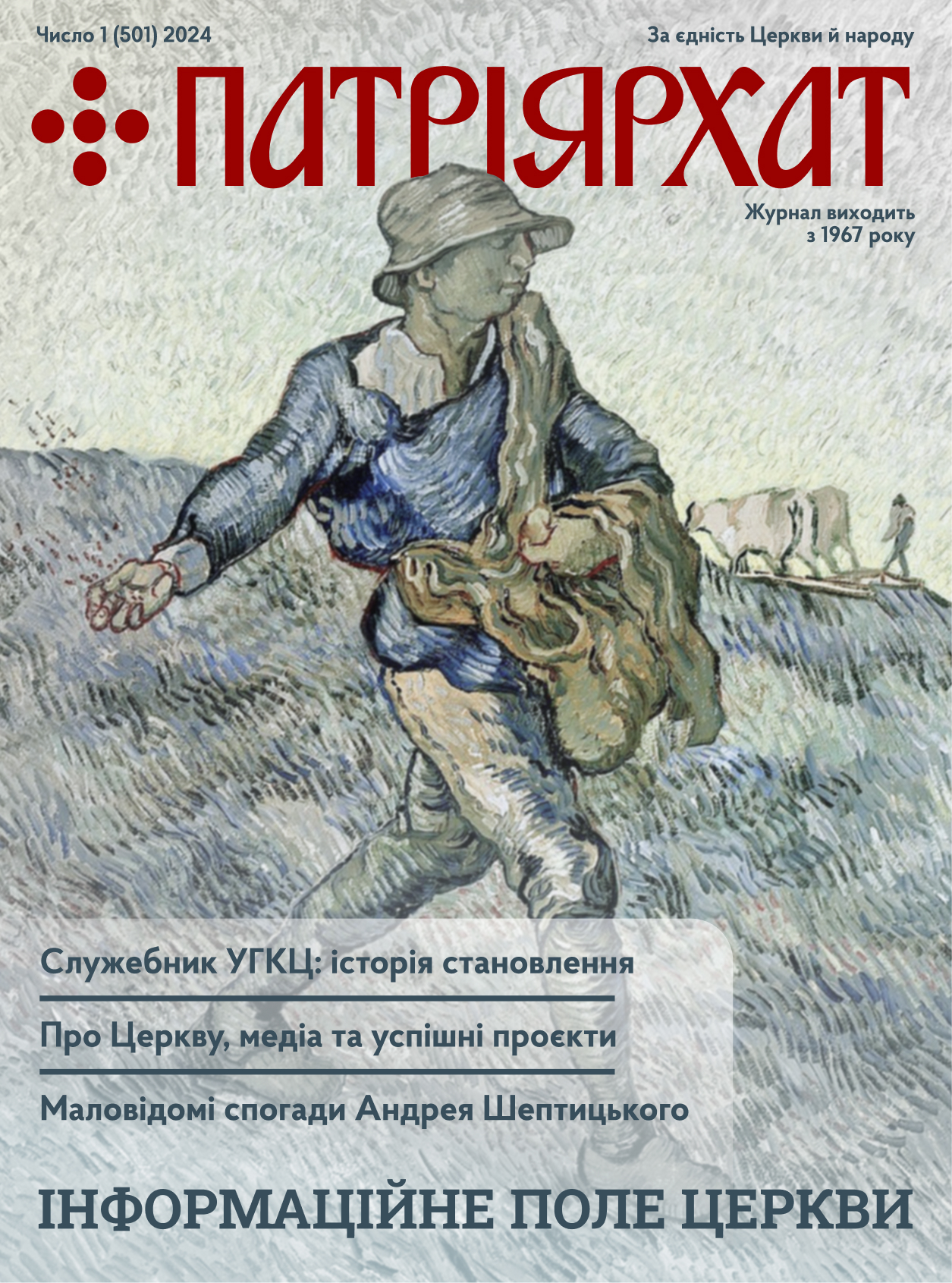On February 22, at eight o’clock in the morning, the nomination of Monsignor John Stock as auxiliary bishop was announced through the Office of Archbishop Louigi Raimondi, the Apostolic Delegate to the United States о Without regard to the strong protests and a deep disappointment of the Ukrainian laity the same source announced on May 4, 1971, the nomination of another auxiliary bishop to the same Metropolitan Ambrose Senyshyn, what intensified an anger and a dispair within the Ukrainian catholic community.
It is the conviction of wide masses of Ukrainians that it is in violation of the rights of the Ukrainian Catholic Church. This evaluation is based on the rights guaranteed this Church by the Union of Brest of 1596 when it reestablished its affiliation with Rome, the provisions in “Cleri Sanctitati” issued in 1957, the “Decree on Catholic Eastern Churches” accepted by 2,700 Council Fathers at Vatican II and promulgated on November 21, 1964 by Pope Paul VI, and upon the resolutions accepted by the Fourth Archiepiscopal Synod of Ukrainian Catholic Bishops held in Rome early in October of 1969 convoked in accordance with the rights reasserted the Eastern Catholic Churches by the said decree. All the above recognize the right for the head of the Ukrainian Catholic Church, together with his Synod, to appoint bishops for their particular Church. Yet, the nominations in question, were made not only without the consent of Major-Archbishop Joseph Cardinal Slipyj and his Synod, but even without consultation with him, more precisely without his knowledge. The head of the Ukrainian Catholic Church was not even granted the courtesy of notification from official Vatican spokesman of this nomination. He learned of it from the newspaper as did the average layman.
Such procedure, following on the heels of Archbishop Agostino Casaroli’s trip to Moscow during which it was reported that he spoke in defense of the rights of Roman Catholics in Lithuania, Polish Catholics in Lviv and Odessa in Ukraine but made no reference to the rights of approximately five million Ukrainian Catholics in Ukraine, was interpreted as proof of the rumored Vatican-Moscow agreement to lay the Ukrainian Catholic Church on the sacrificial block for the promulgation of a Vatican-Moscow dialogue in the interest of some indefinite “higher cause”.
Information from reliable sources indicates that this fear is not a baseless one. Discussions at “what price” a Moscow-Vatican dialogue was possible commenced in the early days of Vatican II. To pacify adverse public opinion towards such a dialogue, steps were taken to liberate the high ranking eastern Catholic Church prelate still imprisoned in Soviet labor camps. The Moscow regime consented to the release of Archbishop Joseph Slipyj (now Cardinal) upon Vatican’s promise that the liberated prisoner would keep his silence. The released prisoner, at the wish of Pope John XXIII took up residence in Rome. With this psychological ace in the possession of the dialogue negotiators talks about the possibility of a Vatican-Mowcow dialogue made progress.
The liberated head of the Ukrainian Catholic Church kept the Vatican promised silence. He did not, however, remain inactive. Metropolitan Slipyj, the sole survivor of the Ukrainian Catholic Church prelates imprisoned by the atheistic regime of the Soviet Union, rose at the Vatican Council to propose the creation of a patriarchate for the Ukrainian Catholic Church. The “Decree on Catholic Eastern Churches” recognized the legitimacy of his proposal.
This was not in accordance with Soviet plans for the Ukrainian Catholic Church. They called for its destruction. The Russian Communists, therefore, inaugurated counter measures to insure success for their plans for this Church. It has been learned from reliable sources that during Peter Podgorny`s visit to Rome in February of 1967, he stipulated the prerequisites for the continuation of the Vatican-Moscow dialogue. These were: 1) the formal recognition of the liquidation of the Ukrainian Catholic Church in Ukraine and its incorporation into the Orthodox patriarchate of Moscow (as per the fictitious 1946 Synod of Ukrainian bishops held in Lviv at which not one Ukrainian Catholic bishop was present); the liquidation of the Ukrainian Catholic Major Seminary in Rome; 3) The liquidation of the Ukrainian Catholic Minor Seminary in Rome.
In December of 1970, Andrei Gromyko came to Rome and stipulated similar conditions for the prolongation of the Vatican-Moscow dialogue. About the same time Poland’s Cardinal Vishynsky came to the Vatican and under the pressure of that country’s communist regime presented a plan for the establishment of Roman Catholic churches from “sea to sea” (that is from the Baltic to the Black Sea.) There was no recognition of the rights of Ukrainian Catholics on their native territory during either of these sessions, Ukrainian Catholics constituting the “Church of the Modern Catacombs” were left defenseless by the Vatican.
Now, the same reliable sources which reported the above, leaked the information that during his recent visit to the Soviet Union, Archbishop Casoroli agreed in Moscow that the Vatican would recognize the non-existence of the Ukrainian Catholic Church in: Ukraine and would tolerate its existence abroad only as long as it took to assimilate it into other Catholic ecclesiastical structures more acceptable to the Soviet Union.
In the face of these facts and rumors and the efforts of the Sacred Congregation for Eastern Churches during the winter of 1969 to invalidate the synod of Ukrainian Catholic bishops held that fall, the abrogation of the right of the Ukrainian Catholic hierarchy to nominate a bishop for their Church was interpreted as an indication: of Vatican policy of political expediency in favor of the continuation of a Vatican-Moscow dialogue. It was taken as a sign of the willingness of the Vatican to make a sacrificial lamb out of the Ukrainian Catholic Church in its search for improved relations with the Soviet Unione.
Morally it is unexplainable. And formally – it is a violation of centuries old rights of the Ukrainian Catholic Church, which have been reaffirmed by the Vatican Council II.

